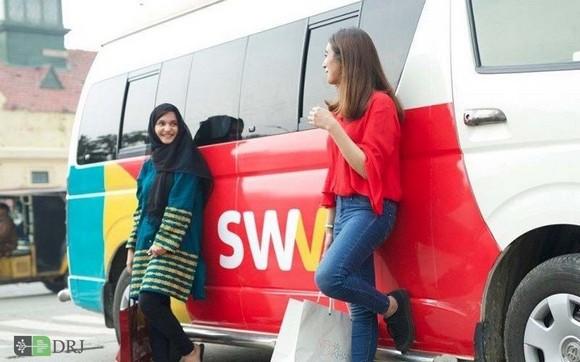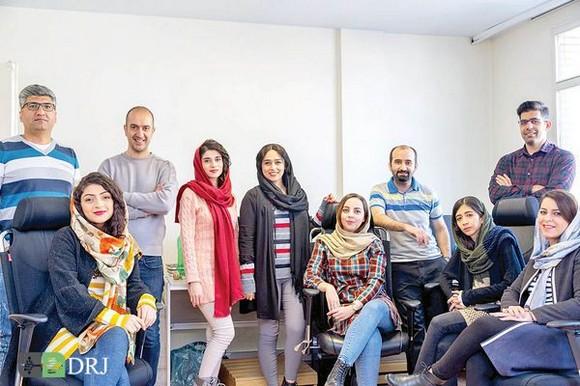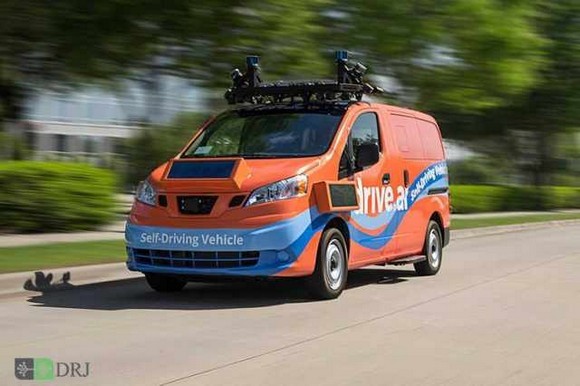When Swiggy started out in 2014, it was seen as a late entrant to an overcrowded market. The online food ordering and delivery market was not considered attractive back then, and Zomato, the leader in food-tech, had decided not to expand its delivery business, which was seemingly messy and unviable. Yet, in less than four years, Swiggy is part of the much-vaunted league of “unicorn” startups. It has also forced an about-turn from Zomato, which is now investing hundreds of crores of rupees to catch up with Swiggy, which sits pretty at the top of the online food ordering business.
Last week, Swiggy raised $210 million at a valuation of $1.3 billion, marking an important milestone for what has been a remarkable journey of the three entrepreneurs from different backgrounds, who built one of India’s most sought-after consumer internet firms.
To put it in perspective, Flipkart, which is widely regarded as India’s most successful startup, took a little over six years to enter the billion-dollar club. Swiggy, which was launched in the Bengaluru neighbourhood of Koramangala by Sriharsha Majety, Nandan Reddy and Rahul Jaimini, breached the same mark in less than four years, becoming the fastest startup to become a unicorn.
Swiggy is literally the only consumer internet startup from the 2014-2015 hyper-funding wave that continues to thrive. That wave was supposed to produce dozens of successful companies and a handful of unicorns. Once the dust settled, only Swiggy succeeded. Along the way, it has beaten both far older companies, such as Zomato and Foodpanda, as well as peers, including Tinyowl, which eventually collapsed. Here’s how.
Sharp focus on logistics
Swiggy’s success is part of a bigger trend in the startup ecosystem: companies that have controlled the entire value chain of customer experience have triumphed over pure marketplaces. Swiggy got a lot of things right, but the driving force behind its success is in its excellent logistics operations.

When Swiggy started out, it was fashionable for startups to avoid getting their hands dirty and focus on building a cool app rather than taking up the arduous task of building a supply chain. The likes of Zomato, TinyOwl and Foodpanda built marketplaces that connected customers to restaurants but “outsourced” delivery to either restaurants or third-party logistics providers. In 2015, even Flipkart was cutting its logistics operations, a mistake that it would later reverse. However, Swiggy was convinced that the only way to crack the food delivery market was to build an extensive logistics network. Now, most food-tech businesses are taking control of their own delivery fleets.
“Two things stand out about Swiggy,” said Mukul Arora, partner at SAIF Partners, which, along with Accel Partners, had led the first institutional round of funding into Swiggy in January 2015. “One, they are truly customer obsessed. They were able to figure out that the delivery experience in the food delivery market was broken. Two, Harsha and the founders focused on building a strong management team from a very early stage. Not many startups do that.”
Even when Swiggy was only operating in Koramangala, its customer retention and repeat purchase rates were higher than any of their competitors, added Arora, who sits on the board of Swiggy.
Catch the trend early
For two of the founders, Majety and Reddy, Swiggy wasn’t their first rodeo together, so to speak. The two BITS-Pilani graduates had come together in mid-2013 to work on an idea that would fully capitalise on the Indian e-commerce boom. The duo built a technology product called Bundl that aimed to address a massive pain point in Indian e-commerce—shipping goods across the country.
Unlike its peers Zomato, Foodpanda and TinyOwl, Swiggy was convinced that the only way to crack the food delivery market was to build an extensive logistics network.
With Bundl, Majety and Reddy were looking to connect courier companies across India and help them coordinate with each other, while delivering goods for small and medium businesses. The two soon realized there was an even bigger opportunity. After brainstorming sessions, they took the call to shelve Bundl and, instead, attempted to crack the food-delivery space, which in their eyes was ripe for disruption.
However, significant challenges lay ahead. While India was experiencing an unprecedented internet startup funding boom, investors, the world over, were also starting to become wary of the food delivery space, questioning whether it was possible for any venture to build a sustainable and sound business model. Most food delivery startups were running with hundreds of crores in losses.
Besides, several startups, such as Dazo and Eatlo, were shutting shop, while others were acquired. Hyper-local grocery delivery startup Grofers bought Spoonjoy. The likes of TinyOwl and Foodpanda were struggling. Cab-hailing service Ola, which had made a play into food delivery with Ola Cafe, soon shut it down.
Majety and Reddy, who later brought on board a former Myntra software engineer and IIT alumni Rahul Jaimini as Swiggy’s third co-founder, realized early on that they needed to stand out from the rest of the crowd.
Build a complementary team
For Majety and Reddy, Bundl was anything but a failure. As a tribute to their earlier efforts, they decided to incorporate Swiggy as Bundl Technologies Pvt. Ltd in August 2014. And, each of the three co-founders brought unique skills to the table and that worked well for Swiggy.
In 2011, Majety had originally found his calling as a trader at Nomura in London. But he soon got disillusioned with corporate life. He quit his well-paying job after a year and decided to take time off work and travel the world. His journey took him across Europe and Asia and, during that time, he realized that he wanted to strike out on his own.
Reddy had a more diverse trajectory. After being a business consultant for a couple of years, he decided to launch a biryani joint in Hyderabad, along with a few others. He also built a cloud-based tablet, which served as a point-of-sale device for Galla restaurants and help them effectively manage billing and inventory.
Finally Jaimini, having studied abroad and working at companies such as NetApp and Myntra, had tech chops that complemented the skills of his co-founders.
However, it was clear that Majety was the leader, given his ability to balance long-term vision with strong daily execution, said Swiggy board member Sumer Juneja, who is director of Norwest Venture India. “While he came from a strong product mindset, he totally understood financials. He demonstrated this early on in our investment, where he shifted focus to ‘proving the viability’ of the food delivery model rather than focusing blindly on growth. Harsha also stands out because of his humility and maturity. He seeks feedback, takes quick decisions and has been the voice of reason which drives consensus across stakeholders on key matters .”
With Swiggy, the trio attempted something that no other online food ordering startup in India had ever done—they invested in building a proper logistics network, with a vast fleet of their own delivery boys. This, at a time, when many restaurants were not convinced about the online channel. Swiggy invested in a large sales force to bring and keep popular restaurants like Truffles and others on board. It also invested in building technology to make its logistics network more efficient.
Within a year of the launch, Swiggy had managed to create a buzz, with order volumes increasing exponentially on its platform with each passing month. Larger rivals, such as Zomato, also sat up and took notice, deciding to venture into food delivery in 2015. In June that year, Swiggy got its second major cheque from Accel, Norwest and SAIF. Interestingly, a few months after its launch, Swiggy had also started charging customers for deliveries, unlike its rivals. The fact that the business did not suffer losses helped convince Swiggy’s investors that the model was working.
“Back then, nobody was doing as well as Swiggy on one key metric—customer experience,” said Swiggy board member and investor Vishal Gupta, managing director at Bessemer Venture Partners. “If you look at their strengths—on-time deliveries, consistency of such deliveries, speed, every day, every weekend, being able to manage all that well takes some doing. Whether it was rain, hell or high water, nobody came close to them in terms of that consistency. Also, they had plenty of top restaurants as exclusive partners, which ensured high customer retention.”
Ensure it’s sustainable
The past four years, however, haven’t been entirely without its share of challenges for Swiggy. The internet funding boom that started in mid-2014 collapsed dramatically 18 months later. The bubble burst and several startups started shutting shop. The food delivery space was hit particularly hard.
The most notable meltdown was that of TinyOwl. Much of its growth came on the back of discounts and promotions. But unlike Swiggy, TinyOwl did not have its own fleet and relied on its restaurant partners for deliveries, neither did it enjoy loyalty with the restaurants. As a result, when funds dried up, it had to cut discounts and users fled. Eventually, TinyOwl was forced into a merger with Roadrunnr, to create Runnr, which was later acquired by Zomato.
While order volumes remained high for Swiggy as compared to rivals, the company’s losses jumped 65 times for the year ended March 2016, according to regulatory documents filed with the ministry of corporate affairs. As part of their move to build a more sustainable business, Swiggy spent most of 2016 focusing on reducing costs by making its logistics network more efficient. It also started outsourcing some deliveries by tying up with third-party logistics players. It increased the delivery cost and surge pricing during peak hours.
Those efforts started paying off. In September 2016, Swiggy raised $15 million from new and existing investors, such as Bessemer Venture. At the same time, because of its excellent customer service, order volumes continued to grow. Swiggy also stood out from the pack thanks to its strong restaurant partnerships, easy-to-use app, new bets and experiments with projects like “cloud kitchens”—a programme that allows its restaurant partners to set up kitchen spaces in areas where they don’t operate. By May 2017, Naspers led an $80 million funding round into Swiggy.
Road ahead
The online food ordering business in India is expected to treble in size over the next three years to at least $2.5 billion, according to recent estimates from RedSeer. Swiggy and Zomato have so far led the way with large funding rounds. Now, the likes of Uber and Ola have also thrown in their hats to grab a pie of the fiercely competitive segment in the consumer internet business space. Ola acquired Foodpanda and is building a food-delivery platform, while Uber launched its UberEats service in India last year.
“Zomato, UberEats and (Ola’s) Foodpanda are credible players, but food delivery is not their core business. They can’t do what Swiggy does day in, day out,” said Gupta. Indeed, Swiggy still has a significant edge over its nearest rivals, but it remains to be seen whether it can avoid mistakes in the nest phase.
Also Read:
Naspers, Russia’s DST lead $210m funding in Indian food ordering startup Swiggy
India: Zomato invests $15m in Loyal Hospitality, shuts cloud kitchen operations
This article was first published on Livemint.com
The post The journey of how Swiggy became India’s fastest unicorn appeared first on DealStreetAsia.

ایده ها برای استارت آپ موجب رونق کسب و کارهای اینترنتی
آینده / استارت آپ

استارتآپها ادبیات بازار سرمایه را بلدند؟
استارت آپ

صدور تاییدیه دانش بنیانی شتابدهنده صدر فردا
اخبار / استارت آپ

اپلیکیشن شارژاپ
گوناگون / استارت آپ / رپرتاژ آگهی / بازتاب

جذابترین ایدههای B2B در سال 2020
استارت آپ

تعریف استارت آپ startup
دانشنامه / استارت آپ / مقاله

۱۰ استارتاپ که بدون سرمایه به سوددهی رسیدند
استارت آپ

ایده ها و پیشنهاد برای استارت آپ در سال جدید
راهکارها و ترفند ها / استارت آپ

استارتآپ ایرانی؛ مرجع اول زنان افغان
استارت آپ

شروع یک کسب و کار نوپا پلتفرمی
استارت آپ

برنامه شبکه اجتماعی تیندر
گوناگون / معرفی وب سایت / استارت آپ

10 استارت آپ برتر تاکسیرانی جهان
استارت آپ

پخت پیتزاهای هیجان انگیز با هوش مصنوعی
آینده / استارت آپ

ایده های استارتاپی فراموش شده
دورنما / بازار / استارت آپ

اپل، استارتاپ فناوری خودران Drive.ai را تصاحب کرد
استارت آپ

بررسی مهمترین چالشهای تیمهای استارتاپی
استارت آپ

نگرانی کاربران از هزینه تعمیر و تامین قطعات
گفت و گو / بازار / استارت آپ

مصاحبه با مدیرعامل و بنیانگذار استارتاپ Moz
گفت و گو / استارت آپ

آشنایی با استارت آپ های حوزه مدیریت آب
استارت آپ

راه اندازی ۷۰ استارت آپ توسط نخبگان ایرانی
استارت آپ

معرفی هشت استارتآپ موفق ایرانی در حوزه فینتک
استارت آپ

اولین مرورگر شرعی دنیا
استارت آپ

از صفر تا پیست
استارت آپ

معرفی برترین استارتاپهای CES 2019
اخبار / استارت آپ

ازدواج با فرد ثروتمند یا خوش اخلاق
سبک زندگی / برترین ها

هدف از تشکیل خانواده چیست
سبک زندگی

اول عاشق شویم، بعد ازدواج کنیم
سبک زندگی

خانواده چیست
سبک زندگی

مشاوره خانواده چیست؟
سبک زندگی

اولویتهای پسانداز خانواده چیست؟
سبک زندگی

هزینه های خانواده چیست؟
سبک زندگی

راهکار بیشتر حرف زدن اعضای خانواده چیست؟
سبک زندگی

چرخه زندگی و خانواده چیست؟
سبک زندگی

اهداف و اصول تشکیل خانواده
سبک زندگی

آموزش جنسی نادرست به سبک خانم جلسه ای
سبک زندگی

لطفا تماشاچی آزار زنان نباشید!
سبک زندگی

کودک آزاری؛ از نشانهها و دلایل تا درمان
گزارش / سبک زندگی / پرورش کودکان

روش های تعیین هدف و مسیر زندگی برای رسیدن به موفقیت
سبک زندگی
مجله اینترنتی دیپروتد نشریه مجازی بر بستر اینترنت به مسائل آموزشی و مقالات پیرامون کسب وکار های نوپا یا استارت آپ ها و سبک زندگی است فعالیت و محتوای مطالب ارائه شده در سایت همه بیشتر در حوزه مدیریت، کارآفرینی ، روانشناسی ،اقتصادی و فناوری اطلاعات است نام اصلی دیپروتد "ریشه های عمیق " با مجوز رسمی از هیات نظارت برمطبوعات مشغول به فعالیت است
ما را در شبکه های اجتماعی دنبال کنید
تمامی حقوق برای سایت فوق محفوط است.
S-TECH: ایرانی توانمند | Powered by: مجله اینترنتی دیپروتد









